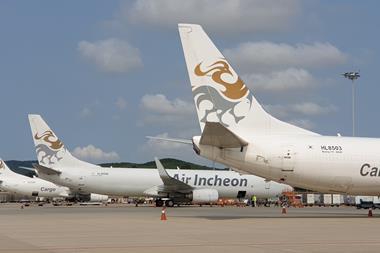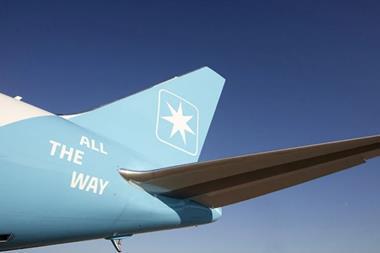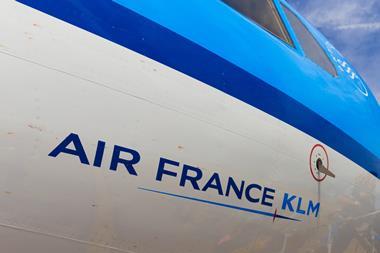Unions representing the pilots of nearly 50 commercial airlines have teamed up to oppose a study that would research and develop a programme to support single-pilot freighter aircraft.
The alliance, which was announced at the recent Air Safety Forum, contains the Air Line Pilots Association, Int’l (ALPA), the Allied Pilots Association (APA), the Coalition of Airline Pilots Associations (CAPA), the Independent Pilots Association (IPA), the International Brotherhood of Teamsters, the NetJets Association of Shared Aircraft Pilots (NJASAP), the Southwest Airlines Pilots Association (SWAPA).z
The unions are opposed to the FAA Reauthorization Act of 2018, which includes provisions that would allow the FAA, in consultation with NASA and other relevant agencies, to establish a research and development programme in support of single-piloted cargo aircraft assisted with remote piloting and computer piloting.
READ MORE
The Reauthorization, including the provision, was passed in April by the US House of Representatives but still needs to make it through Congress.
The unions argue that single-pilot aircraft will reduce safety levels, particularly in emergency situations, and could be hacked by terrorists.
“Pilots are trained to operate an aircraft while interacting with air traffic control; communicating with Dispatch; checking current weather and forecasts; visually scanning for other aircraft; and monitoring engines, fuel, and other systems,” they said in a statement.
“In non-routine situations, the workload on the flight deck can increase significantly in a short time period. Addressing these situations requires at least two well-trained, fully qualified pilots to communicate in real time without delay or the potential for a lost connection.”
“Cargo and passenger carriers operate the same high-performance jet aircraft, share the same congested airspace, and fly over the same densely populated areas. There’s no logical reason to apply different standards to each,” said Dan Carey, president of APA.
“Given the threat posed by computer hacking and the accident rates for autonomous vehicles and military and civilian drones, it’s astonishing that policymakers would even consider this notion. APA is adamantly opposed to the language in Sections 744 and 703(a)(xviii), and we urge Congress to remove it to help preserve public safety.”
Said Lee Collins, CAPA president: “This technology is neither mature, nor proven to a level of confidence capable of assuring a higher level of safety than that which can be attained by two highly qualified, highly trained professional airline pilots on the flight deck.
“Having the ability to do so in a lab under controlled circumstances does not mean we should do it in our national airspace system now or at any time in the future.”
Read more air cargo technology news
Sign up to receive Air Cargo News direct to your inbox for free










